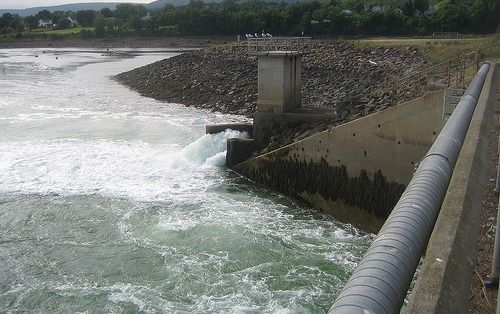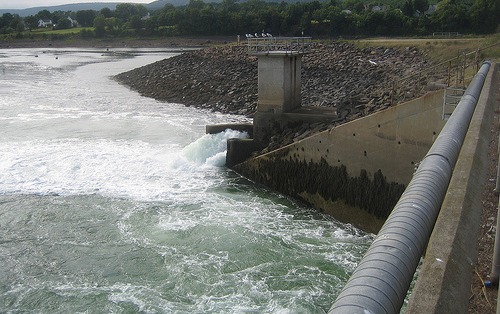UK marine energy sector worth £76 billion by 2050
The UK’s share of the global marine-energy sector could be worth £76 billion by 2050, according to the Carbon Trust (3 May). It could create 68,000 jobs through home-grown technology and exports, and capture around a quarter of the global market. However, they warn that the right environment must be created.

 The UK marine-energy market could be worth as much as £76 billion by 2050, according to a report by the Carbon Trust (3 May).
The UK marine-energy market could be worth as much as £76 billion by 2050, according to a report by the Carbon Trust (3 May).
The report which examines global marine-energy potential, suggests that up to 240GW could be generated globally by 2050, with the total global market worth £460 billion during the same period.
According to the report, the UK could become a global leader, capturing around a quarter of the global marine energy market and creating over 68,000 jobs.
This figure is based upon the Carbon Trust’s ‘high scenario’ which sees technology successfully developed and deployed internationally, with the UK building on its current lead.
The majority of UK jobs – 70 per cent of tidal and 85 per cent of wind – would be from growing export markets in countries like Chile, Korea, America and Atlantic-facing European countries.
Benj Skyes, director of innovations at the Carbon Trust said: “Marine energy could be a major ‘made in Britain’ success. By cementing our early mover advantage, the UK could develop a significant export market, generate thousand of jobs and meet our own demand for clean, home-grown electricity.”
The UK currently boasts 35 of the world’s 120-130 marine energy developers. British companies such as Pelamis, Aquamarine Power and Marine Current Turbines have led the way in deploying their technologies.
The report, which examines three different scenarios of marine-energy leading to 2050, found that marine-energy capacity in the UK could be as much as 27.5 GW by 2050, which would supply the grid with around a fifth of current electricity demand.
However, for this to happen, the Carbon Trust warns, the right environment has to be created, with the most substantial barrier currently being developing the electrical grid to accommodate the marine-energy generation.
While the UK currently has a strong R&D university base, with 13 out of 40 universities globally being based in the UK, the Carbon Trust warns the ‘fast followers’ who could threaten its leading position.
And they also call for more innovation, which will be necessary to push technologies forward to commercial deployment; there are currently only a few full scale demonstrations. They urge wave-power designs to move further offshore and into deeper water for tidal designs.
Skyes said: “To maintain our world-leading position, we must continue to drive innovation within the industry and turn our competitive advantage in constructing and operating marine technology into sustained green growth.”
Finally, according the report, the cost of marine energy must be reduced to compete with other low-carbon technologies – while they may be influenced by the progress in nuclear and CCS. Wider public approval is also vital, they say.
While positive about the role the UK could play in marine-energy systems leading to 2050, they also offer a warning that smaller levels of deployment and even zero deployment are still very possible.
Image: Kevin McManus | flickr

_400_250_80_s_c1.jpg)




